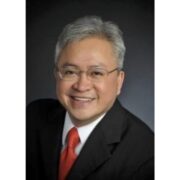The US Supreme Court recently highlighted the importance of overtime laws. In eliminating “oppressive working hours”, it sought to ensure that employees are properly compensated for “the burden of working extra-long hours.” The Court ruled that daily-rate employees must be paid overtime, as wages based on a daily rate does not qualify as a “salary” that would exempt the employee from overtime.
Michael Hewitt worked as a “Toolpusher” on an offshore oil rig. His work schedule had him on duty for 28 consecutive days, followed by 28 consecutive days off. When he was on duty, he worked 12 hours a day, 7 days a week, such that he routinely worked 84 hours per week. Hewitt’s employer, Helix Energy Solutions Group (“HESG”), paid him a daily rate that ranged from $963 to $1,341 per day in the 3 years he worked for the company. Under that compensation scheme, Hewitt was paid over $200,000 annually.
HESG did not pay Hewitt any overtime for work in excess of 40 hours in a week, as required by the federal Fair Labor Standards Act (“FLSA”), contending that Hewitt was a highly-paid executive exempt from overtime. Hewitt filed a lawsuit claiming that he was owed overtime wages. In Helix Energy Solutions Group, Inc. v. Hewitt, the Supreme Court agreed with Hewitt, finding that the daily rate paid to him by HESG did not satisfy the salary-basis requirement for the executive exemption from overtime.
Under the FLSA, an employee is exempt from overtime as a bona fide executive if they meet the following 3 requirements:
(1) they are paid on a “salary basis,” meaning that they “receive a predetermined and fixed salary that does not vary with the amount of time worked”;
(2) they are paid no less than $455 per week; and
(3) they satisfy the “duties” test, meaning that they manage the enterprise, direct other employees, and have the power to hire and fire those employees.
The salary-basis test can only be met if an employee receives a “predetermined amount” that is “not subject to reduction because of variations in the quality or quantity of the work performed.” The exempt employee “must receive the full salary for any week in which the employee performs any work without regard to the number of days or hours worked.” The Court emphasized that “if…an employee works any part of a week, he must receive his ‘full salary for [that] week’—or else he is not paid on a salary basis and cannot qualify as a bona fide executive.”
The Court ruled that, since Hewitt’s paychecks were computed by multiplying his daily rate with the number of days he actually worked in the pay period, HESG could not satisfy the salary- basis required for exemption from overtime. In other words, because his weekly pay could vary depending on the number of days he worked, he was not paid a “salary” within the meaning of the overtime exemption.
Since Hewitt worked 84 hours per week, under the FLSA’s requirement that overtime wages be paid for all work in excess of 40 hours per week, he is owed 44 hours of overtime pay for every week that he worked.
The Supreme Court’s ruling is a reminder that employees paid on a fixed daily rate, regardless of how much income they make, must be paid overtime. Under federal law, overtime is any work in excess of 40 hours per week. Under stricter California law, any work in excess of 8 hours in a day, or 40 hours in a week, is entitled to overtime.
* * *
The opinions, beliefs and viewpoints expressed by the author do not necessarily reflect the opinions, beliefs and viewpoints of the Asian Journal, its management, editorial board and staff.
* * *
The Law Offices of C. Joe Sayas, Jr. welcomes inquiries about this topic. All inquiries are confidential and at no-cost. You can contact the office at (818) 291-0088 or visit www.joesayaslaw.com. [For more than 25 years, C. Joe Sayas, Jr., Esq. successfully recovered wages and other monetary damages for thousands of employees and consumers. He was named Top Labor & Employment Attorney in California by the Daily Journal, consistently selected as Super Lawyer by the Los Angeles Magazine, and is a past Presidential Awardee for Outstanding Filipino Overseas.]
(Advertising Supplement)






